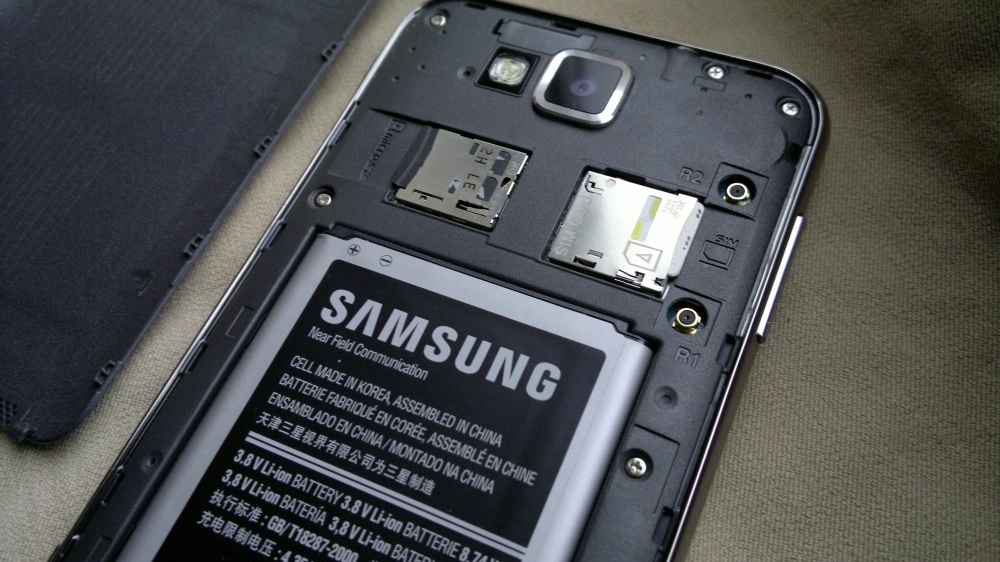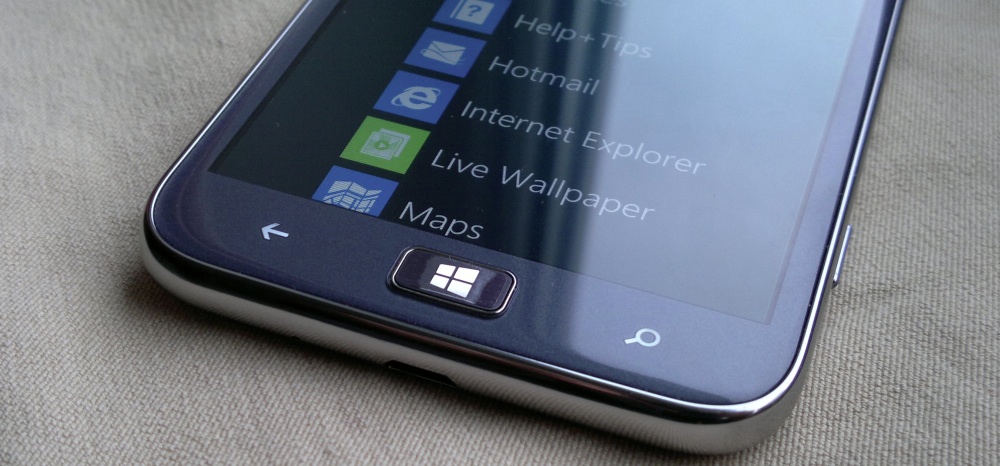Samsung were first out of the gate with a Windows Phone 8 handset with the ATIV S back in September 2012. Since then, nothing. A slew of products across various platforms was announced yesterday at Earl's Court, and it would have been the perfect time to update the uninspiring Windows Phone range.
Let's be honest here, Samsung are not setting the world alight with their Windows Phones. They're not even trying to spark some kindling. To use a poker analogy, they have folded at every opportunity that passes their way in the Windows Phone ecosystem. When they have had to do something, they've played the equivalent of a 'small bind', first with the budget Omnia M in the summer of last year (a device that was compromised by poor specs and limited availability) and then the aforementioned ATIV S, which lifted much of the styling of the Android based Galaxy S3, and a rather lacklustre sprinkling of Samsung apps to 'differentiate' the handset from the upcoming HTC Windows Phone 8X and Nokia Lumia 920.
Since then, Nokia have iterated the Lumia range to create new high end devices in the Lumia 925, and pushing down the range but maintaining value with the Lumia 520 and 620. HTC have stood behind the 8X and 8S and it's still picking up promotion from networks, with the 8S proving a popular budget seller.
Samsung? Err... yes, exactly.

Samsung are insanely focused on establishing the Galaxy S4 platform. The core handset is now out there and selling, the first wave of variants have been announced - the alternative colours of the S4, the S4 mini, to have a lower priced variant, and a digital camera/Android handset mash-up to provide a strong entry in the imaging category. For more powerful needs, the global 'ATIV' brand name picks up a Windows 8/Android hybrid portable computing mash-up. From a story point of view, there's no place to fit Windows Phone into that line-up. Samsung's smartphone strategy in the short term is Android, and you have to assume that Tizen is where the medium to long term focus is going to be.
One of Samsung's key strengths is their PR message. It drove sales of the Galaxy range, especially the S3, and that allowed them to create a strategy of advertising hard to sell significant volumes of devices, which would feed back an income stream to the marketing team. They know the value of positive advertising, and they also know the power of negative advertising.
Right now the ATIV S is not proving a net negative to Samsung, so it will stay in the line-up, like a bad penny. But Samsung's bad pennies are damaging the brand of Windows Phone .

Frankly, if they're not going to step up and do something with Windows Phone, perhaps the smart thing to do would be for Microsoft to ease them out of the Windows Phone ecosystem, rather than have them drag the brand name down.
While there would be a short term negative impact ('Samsung have given up on Windows Phone'), the truth is that while Samsung gave Windows Phone a few swings with the first generation devices, it's never followed up on those initial experiments. Any in-depth look at Windows Phone is almost duty bound to mention the big three of HTC, Nokia, and Samsung, and while the HTC and Nokia handsets are ones you can be proud of, the Samsung ATIV S stands out like a wallflower of contractual obligation.
I know the phrase 'if a job's worth doing then it's worth doing well' is a cliché, but it's a cliché for a reason. Right now, Samsung are not doing any job, let alone a good one, with Windows Phone. The conspiratorial reader out there might think that the only reasons Samsung has such a nominal interest in Windows Phone is to keep an eye on what Nokia are up to, and to prevent a media story around the success of Windows Phone building up. After all, can you build up a success story when one third of the major partners won't put any effort behind the platform?

Of course, Microsoft can't just show Samsung the door. For a start, it's not the polite way to do business, and on the other hand Samsung have made a strong investment to support Windows 8 with new hardware, laptops, and ultrabooks. And there is a small amount of value in having Samsung use Windows Phone. I'm just worried that the negatives are starting to outweigh that positive.
Much like the smartphone market has boiled itself down to a major player, a minor player, and everyone fighting for third place, so has Windows Phone boiled down to a major player (Nokia), a minor player (HTC), and the third place spot. Unfortunately, it doesn't look like anyone is willing to fight for third place... LG, Dell, Fujitsu and Alcatel haven't moved up to Windows Phone 8 and show no signs of doing so; ZTE is, like Samsung, focusing on Android but on the lower ends of the market. Huawei might be able to do something with the Ascend W1, especially with the push in the African continent, but this is an area that Nokia are hungry for, so it won't be an easy fight for Huawei. Huwaei are also unlikely to make any significant in-roads in the US market due to their media profile as a Chinese telecoms company.
So Samsung take bronze, with almost no effort and expenditure.

Windows Phone deserves better than the offering that Samsung is making at the moment. There's little in terms of styling, software, or functionality that would make me recommend the ATIV S, and I have a horrible suspicion that if Samsung iterate their Windows Phone 8 offerings before the end of 2013, we're going to see a Windows Phone handset that looks remarkably like the Samsung Galaxy S4, with a five inch pentile screen, a 2600 mAh battery, a 13 megapixel camera... and no extra software or features beyond the basic Samsung messaging and image editors already available on the Omnia M and ATIV S handsets.
I would love to be proven wrong and for Samsung to really deliver a Windows Phone 8 handset. There's no doubt that they could put together a phenomenal piece of hardware. But while they could, they haven't. And I doubt they ever will.
